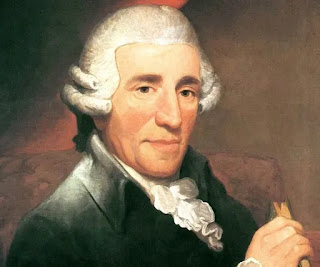Music and the Telling of Stories: If I Were a Rich Man
The Fiddler on the Roof is a musical produced in 1964. The musical is based on a set of stories written by Sholem Aleichem. The music was composed by Jerry Bock, the lyrics were written by Sheldon Harnick, and the book was written by Joseph Stein. The story depicts the life of a Jewish family and community in a small, poor Russian village named Anatevka. The story is set at the turn of the 20th century at a time when Russia was still ruled by a tsar. Aleichem, a Jew himself, was born in 1859 and grew up in Kiev, Ukraine. His story tells about the oppression and poverty of the Jewish culture in Russia at the time, much inspired by his own experience. While the political landscape sets the scene and is a theme in the musical, it primarily focuses on the Jewish traditions held to by the main character, Tevye. Over the course of the story, Tevye's three oldest daughters get married to men whom they love rather than having arranged marriages, as is the tradition. Tevye struggles to reconcile his desire to uphold tradition and his desire for his daughters to be happy, all the while also longing to be out of poverty and have a life of wealth for his family. In this blog, I will discuss the song "If I Were a Rich Man", a conversation Tevye has with God at a moment when he is pondering his poor estate.
https://www.youtube.com/watch?v=RBHZFYpQ6nc
This piece, sung close to the beginning of the show, does so much to tell us about Tevye and the economic state of Anatevka in general. It sets a cultural scene with its light chromatic motifs often found in Jewish music. Part of the reason that I love this show, and this piece in particular, is its emotion and sound Jewish music has a certain solemnity and liveliness that is hard to describe except that it is rarely found in any music I'm familiar with in the American culture. "If I Were a Rich Man" showcases how Tevye's prioritizes his religion and desires the comforts of life. I remember a time in my own life when my family was not so well off, and I would fantasize what it would be like to be rich. It's the 'what if' song that allows the character to show some of the things he wants most. This song helps to give a sense for how poor the folks of the town were while helping us to sympathize with the main character and better understand the setting for the rest of the musical.
While this song sets the general mood of the culture, it also poses an interesting question for our culture today. In the last several decades, there seems to be a mindset emerging from the growing middle class that says that both poverty and wealth are a problem, as if we should only aim to be in the middle either way and that the middle is the peak of a good life. I think this may come from a misunderstanding of wealth. Tevye sums it up quite well here where he shows that while, yes being rich is somewhat superficial, there is another side to it. Toward the end of the song, he sings about if he were rich, he would have the time to sit in the synagogue and pray, and study scripture, and discuss things with learned men. This ability to pursue knowledge and personal growth is a widely overlooked aspect of what wealth truly is. It is an aspect that seems to be lost for those right in the middle, living somewhat comfortably, but spending most of the time working to have that comfort. It seems that the most wisdom can be found when living in the extremes. Severe challenges, as those faced by the people of the village in this story, reveal what is truly important in life, if only you are able to pursue it, and real wealth (not just money which is itself superficial, but the time to grow and contribute to your community) shares the wisdom in life it takes to get there. While this concept of what wealth is is not the focus of the show, it is a snippet of so many other profound thoughts presented throughout the musical. It also gives a window into the heart of the persecuted communities at the time and their longing for peace and prosperity, if only it were possible.
Credits
"Fiddler on the Roof." mtishows.com, https://www.mtishows.com/fiddler-on-the-roof. Accessed 11 April 2024.
Sheehan, James, and Richards, Jeffrey. "Fiddler on the Roof - Educational Guide." fiddlermusical.com, http://fiddlermusical.com/wp-content/uploads/2016/05/FIDDLER-Study-Guide-Sept-21-Final-spread.pdf. Accessed 11 April 2024.
"Fiddler on the Roof." Wikipedia.org, 10 April 2024. https://en.wikipedia.org/wiki/Fiddler_on_the_Roof. Accessed 11 April 2024.




This is a very memorable song. I watched the fiddler on the roof movie way back in elementary school. The song gives a great synopsis for the state of the world that the main character lives in. His life is full of uncertainty. I like that you brought a question on today's society. The "real" and simplistic mindset that can come from being in poverty is often lost with all the distractions that come with increased wealth. Awesome job on the post!
ReplyDeleteI've never seen Fiddler on the Roof (I know!) but as soon as Topol began to sing, I knew I'd heard the song before. I learned a new musical term in my research... Gwen Stefani interpolated "If I Were a Rich Man" in her 2024 song "Rich Girl", meaning she re-recorded the melody, rather than sampling it.
ReplyDeleteSome reviews of the song were unfavorable because people thought it was inappropriate that Stefani would sing about "if" she were rich, when by that point, she'd already sold millions of records and was quite comfortable with her income combined with that of now ex-husband Gavin Rossdale.
But Gwen said the song was written from the perspective of her younger self, when no one knew who No Doubt was and she could only dream of fortune and fame. https://www.youtube.com/watch?v=piALvLKZ4Ms
I really enjoyed reading your blog post. I too have never seen the movie or musical for Fiddler on the Roof. Listening to the song I can totally see where you describe it's "liveliness." While reading the last paragraph I never really thought of the two extremes that way. I do completely agree that the upper class or wealthy sometimes come across "superficial" as you stated but like the song itself discusses, it's more about how the time is being spent than the money. Great job!
ReplyDelete